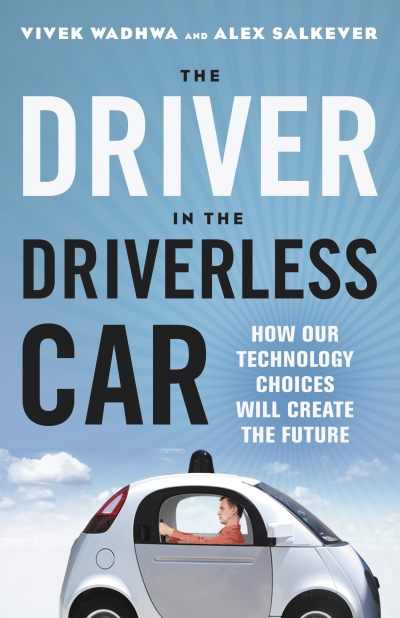
The Driver in the Driverless Car
Wadhwa chooses the Google car as the symbol of his excellent and wide-ranging review of our responses to accelerating technological change. In The Driver in the Driverless Car, [he and] tech journalist Alex Salkever invite us to contemplate two alternative futures: “A utopian Star Trek future… or a Mad Max dystopia". — Read the complete FT review
Synopsis
This book teaches readers to evaluate the potential impact of any new technology by asking three simple questions. According to Vivek Wadhwa, it is up to everyone to choose how technology moves forward. Will our future be Star Wars or Mad Max? If we simply let change happen, we may give our vote to the dark side, which will steal our privacy and control everything by default. A computer beats the reigning human champion of Go, a game harder than chess. Another is composing classical music. Labs are creating life-forms from synthetic DNA. A doctor designs an artificial trachea, uses a 3D printer to produce it, and implants it and saves a child’s life.
Astonishing technological advances like these are arriving in increasing numbers. Scholar and entrepreneur Vivek Wadhwa uses this book to alert us to dozens of them and raise important questions about what they may mean for us.
Breakthroughs such as personalized genomics, self-driving vehicles, drones, and artificial intelligence could make our lives healthier, safer, and easier. But the same technologies raise the specter of a frightening, alienating future: eugenics, a jobless economy, complete loss of privacy, and ever-worsening economic inequality. As Wadhwa puts it, our choices will determine if our future is Star Trek or Mad Max.
Wadhwa offers us three questions to ask about every emerging technology: Does it have the potential to benefit everyone equally? What are its risks and rewards? And does it promote autonomy or dependence? Looking at a broad array of advances in this light, he emphasizes that the future is up to us to create– that even if our hands are not on the wheel, we will decide the driverless car’s destination.
